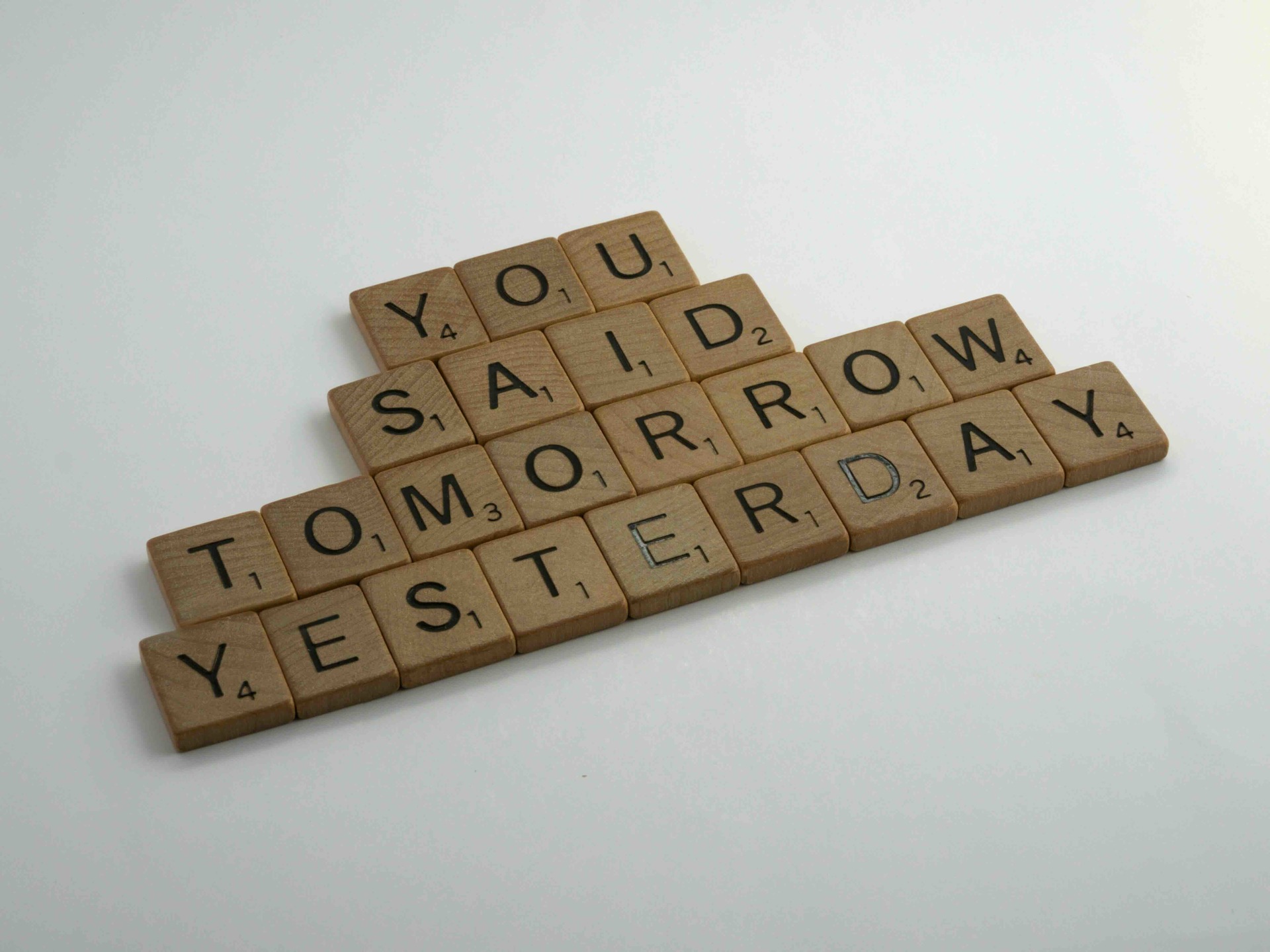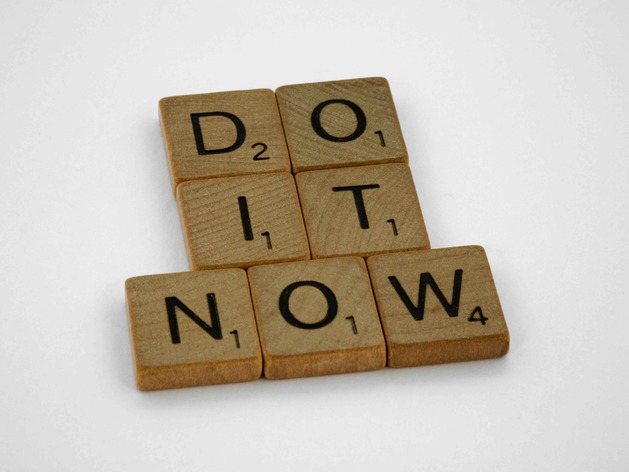Why You Still Feel Like You Don’t Have Time to Exercise (Even When You Do)
You may have been someone who’s struggled to find the time to exercise - until you read our recent blog post, which helped people to discover 12 hidden hours in your week.
However, despite now being aware of this free time, you still feel like, “I just haven’t got time to exercise.” Even though you can clearly see you’ve got a whole day’s worth of free time available to you.
So why is that?
Why, even when you know you have the time, do you still feel like you don’t?
Here are the top three reasons people struggle to utilise their free time and ultimately, why you may feel unable to get started:
- Parkinson’s Law
- Perfection Over Progress
- Procrastination
1. Parkinson’s Law
Parkinson’s Law — coined by Cyril Northcote Parkinson — states that “work expands to fill the time available for its completion.” In other words, if you're given more time to complete a task, it often takes longer, even if the task itself hasn’t changed.
Many of us can relate. Take someone who’s recently retired. When asked, “You must have so much free time now?” their reply is usually something like:
“You’d think that — but I’m busier than ever! I honestly don’t know how I managed to work and do everything else...”
A classic case of Parkinson’s Law. Despite freeing up 40+ hours a week by retiring, that time is now easily filled — often unintentionally — with less essential tasks.
Take myself, for example. I set a strict 3-hour deadline every Friday to write a blog post. If I gave myself all week, I’d fall victim to Parkinson’s Law and end up stealing time from more important tasks just to finish it.
So, if you’ve completed our Time Audit and discovered six hours of spare time in your week, yet still feel too busy to exercise - you’re likely falling into this trap. Like the retiree, your free time has been quietly filled with bits and pieces that feel urgent but aren’t important.
2. Perfection Over Progress
Perfectionism is hard-wired into many of us. It’s part of what’s helped humans evolve and innovate. But it often comes at a cost — and that cost is progress.
I speak with so many people who are unhappy in their skin, tired of how they feel, and desperate to make a change… yet refuse to start because they can’t train three times per week.
As mentioned in my previous blog: you don’t need to train three times a week to see results.
There’s a reason why most governments recommend just 150 minutes (2.5 hours) of moderate-intensity exercise per week - it’s been proven to reduce the risk of all-cause mortality and improve longevity.
Of course, training 3-4 times per week can lead to faster improvements, but if your goal is to feel fitter, become stronger, improve your body composition, and boost your general health - 2 sessions per week is plenty.
It’s absurd to say, “I won’t start until I can do three sessions a week,” because that day will likely never come.
I always explain to people: it’s better to start today - even if that’s just one hour a week - than to wait until 'life calms down.'
(And if Parkinson’s Law has taught you anything - that day is a myth and will likely never arrive. Life is busy!)
Even if you begin with just an hour a week, you’ll soon find momentum builds. Before you know it, you’re able to commit to two, three, or even four sessions per week.
When you start something while busy, you overcome inertia. You put the wheels in motion - and an object in motion stays in motion. You also increase your capacity, and start finding natural solutions to the “I don’t have time” problem.
This is how people transition into progress-driven mindsets and, ironically, end up closer to perfection by no longer chasing it.
3. Procrastination
Procrastination is one of the biggest roadblocks between having an idea… and taking action.
Defined as the act of postponing or delaying something, the Ancient Greeks even had a word for it: akrasia - acting against your better judgment.
If you’re someone who says:
“I’ll do that tomorrow.”
“I’ll start next week.”
“Let me go away and think about it...”
Then you’re dealing with procrastination.
There are two popular schools of thought around why we procrastinate:
- Oliver Burkeman, author of Four Thousand Weeks and Meditations for Mortals, suggests we procrastinate on meaningful tasks because they force us to face uncomfortable truths, like fear of failure, inadequacy, or finality. It feels safer to delay than risk doing something imperfectly.
- Sahil Bloom, author of The 5 Types of Wealth, explains that procrastination is about offloading responsibility onto your future self. You push a task 'down the road' because it’s easier to delegate it to 'later you' than to do it now.
Unfortunately, procrastination is hardwired into us. Our brains value immediate pleasure and comfort, even when we know those aren’t best for us long term.
But here’s the truth: procrastination is a growth limiter.
If you want to fulfil your potential, you have to fight it.
So… What Can You Do About It?
Here are some simple, practical steps to stop procrastinating on exercise, eating well, and doing the things that’ll genuinely make you feel better:
1. Let Go of “All or Nothing” Thinking (inspired by Oliver Burkeman)
Many people put off healthy habits because they think it has to be perfect - a full gym session, flawless meal prep, no slip-ups. That’s just fear wearing a smart disguise.
Instead, ask yourself:
“What would this look like if I let it be easy?”
- A 10-minute walk is a win
- A decent lunch is enough
- One good session is better than zero
Perfection is the enemy of consistency.
2. Start Tiny and Make It Obvious
When life’s busy, your brain craves simplicity. So ditch vague goals like “get fit” or “eat clean.”
Instead:
- Book one session this week.
- Keep a protein bar or bag of nuts in your desk or bag.
- Set an hourly timer to stand and walk for 2 minutes - it genuinely boosts clarity.
Make the next step so small and obvious that it feels easier to do than to ignore.
3. Schedule It (Sahil Bloom's style time-blocking)
Your calendar is already full. If your health isn’t on it, it won’t happen.
People who work out regularly don’t just find time - they make it!
Literally schedule your workouts, food shops, or walks. Treat them like a work meeting that's non-negotiable.
At Hall Personal Training, we run sessions from 6:00am to 8:30pm, on the hour, every hour, which removes the "limited availability" excuse. Members have free rein to book sessions at times that work for them.
4. Close the Thinking-Doing Gap
Saying “I’ll go for a run later” or “I’ll prep something after work” leaves space for procrastination to sneak in.
Instead, pair intention with immediate action:
- Put your trainers by the door
- Chop veg while the kettle boils
- Book that PT session right now!
You don’t need motivation, you just need to start.
Any action, no matter how small, reduces mental resistance and builds momentum.
5. Stop Outsourcing It to “Future You”
The version of you getting home late tomorrow or travelling next week won’t suddenly feel more motivated. Respect that version of you by doing something today to help them out:
- Pack your gym kit tonight
- Plan tomorrow’s lunch
- Block 30 minutes for movement or going for a walk
Future you isn’t a superhero - it’s still you.
Set them up for success by acting in their best interest now!
Final Thought From Me...
Procrastinating around your health doesn’t make you lazy - it makes you human. But if you can notice it and still act, you’ll win.
You don’t need to feel ready, you just need to begin especially when you don’t feel like it. That’s where the real breakthroughs happen.
Ready to Stop Waiting and Start Moving?
The truth is, most people aren’t struggling because they don’t have time - they’re struggling because of how they’re using it. Between Parkinson’s Law, perfectionism, and procrastination, it’s no wonder getting started feels harder than it should. But the moment you take action — however small — everything begins to shift. You don’t need to be perfect. You don’t need the perfect week. You just need a starting point.
That’s exactly what our 30-Day Accelerator Programme is designed for — to help you break through inertia, build momentum, and prove to yourself what’s possible in just a few weeks. Whether it’s one, two or three sessions a week, we’ll meet you where you're at and help you build up from there.
Get in touch today to learn more or secure your place - your future self will thank you for it.



